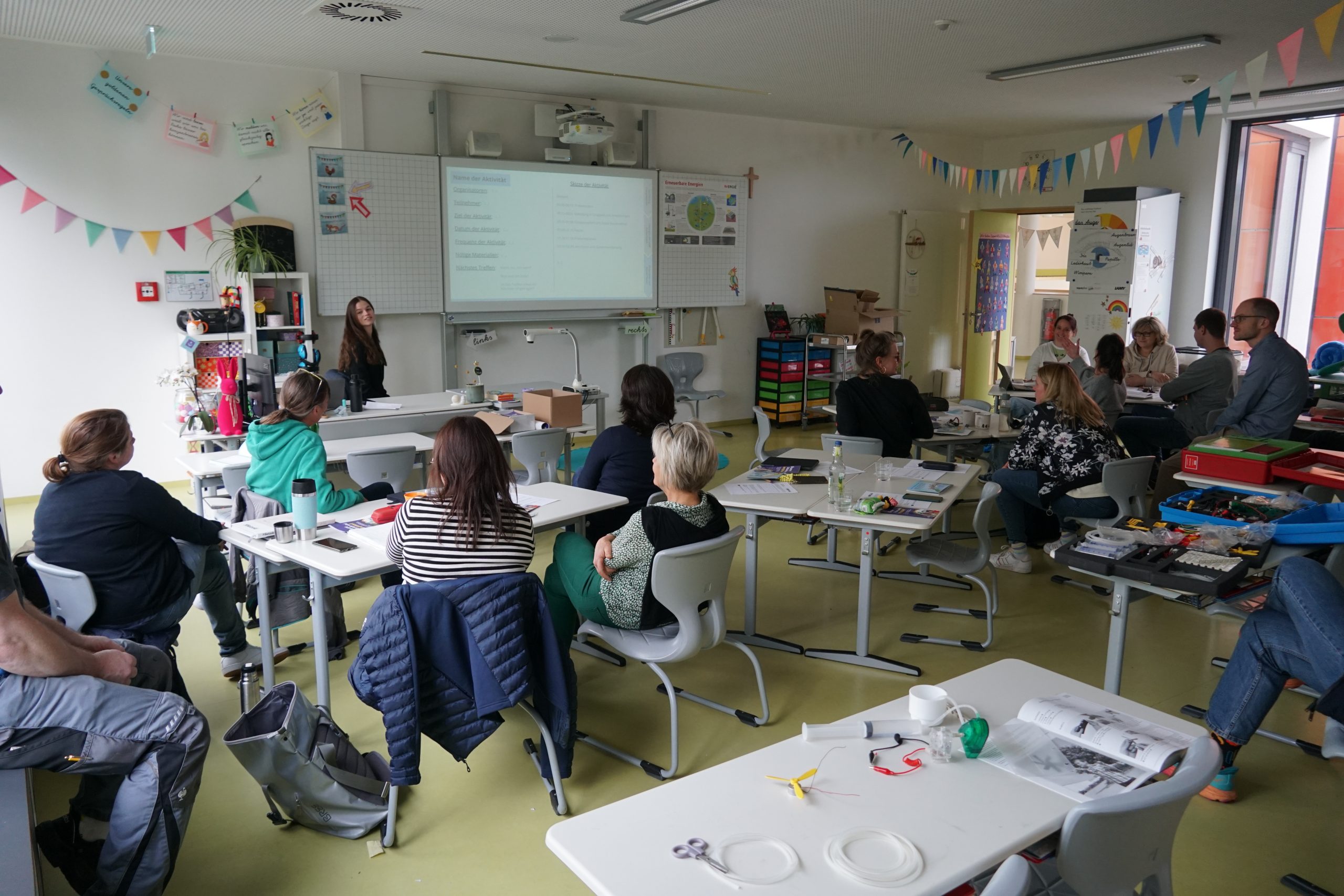On Wednesday, April 10th, SEBR organised a training workshop at the Nuremberg school, where we are carrying out the renovation and implementation of technologies to significantly reduce energy consumption and building emissions. The workshop, designed for the school’s teachers, aimed to introduce recently implemented technologies, raise awareness of their advantages, explore strategies to effectively utilise them to enhance energy efficiency and minimise emissions and design future activities with the kids on climate and energy.
Twelve participants attended, including the school principal, ten teachers from different grades, and one kindergarten teacher. The session began with an explanation of the energy-efficient technologies being implemented, describing their benefits and how they contribute to reducing energy emissions in the school environment. Additionally, participants discussed how to integrate energy efficiency measures into their teaching practices and how to promote awareness and action to reduce energy consumption among their students.
Despite the initially allotted time, the session was extended due to the enthusiasm of the attendees. This active participation serves as a promising indicator for the future implementation of necessary energy-saving measures in the classroom to reduce emissions.
Some key highlights of the session:
- Feedback Overview: While the feedback received was varied, it leaned predominantly towards positivity. Participants appreciated the tangible nature of the session and the supplementary materials provided.
- Interactive Tools: The interactive elements, such as toys and videos, garnered significant interest among the teachers. These resources are slated to be incorporated into the school’s annual climate day activities, enhancing the learning experience for both educators and students alike. Additionally, the children’s books were well-received, with requests for more materials of similar nature.
- Activity Design: Participants collaboratively designed three distinct activities during the session. These included refining the school’s existing climate day agenda to incorporate SEBR materials, developing in-class activities utilizing provided resources, and devising sustainability-focused homework assignments throughout the academic year.

The session succeeded in stimulating critical thinking among participants and effectively disseminating information about the SEBR project. Interestingly, the majority of attendees indicated a lack of prior knowledge about the project, suggesting potential benefits in involving them earlier in future initiatives.
